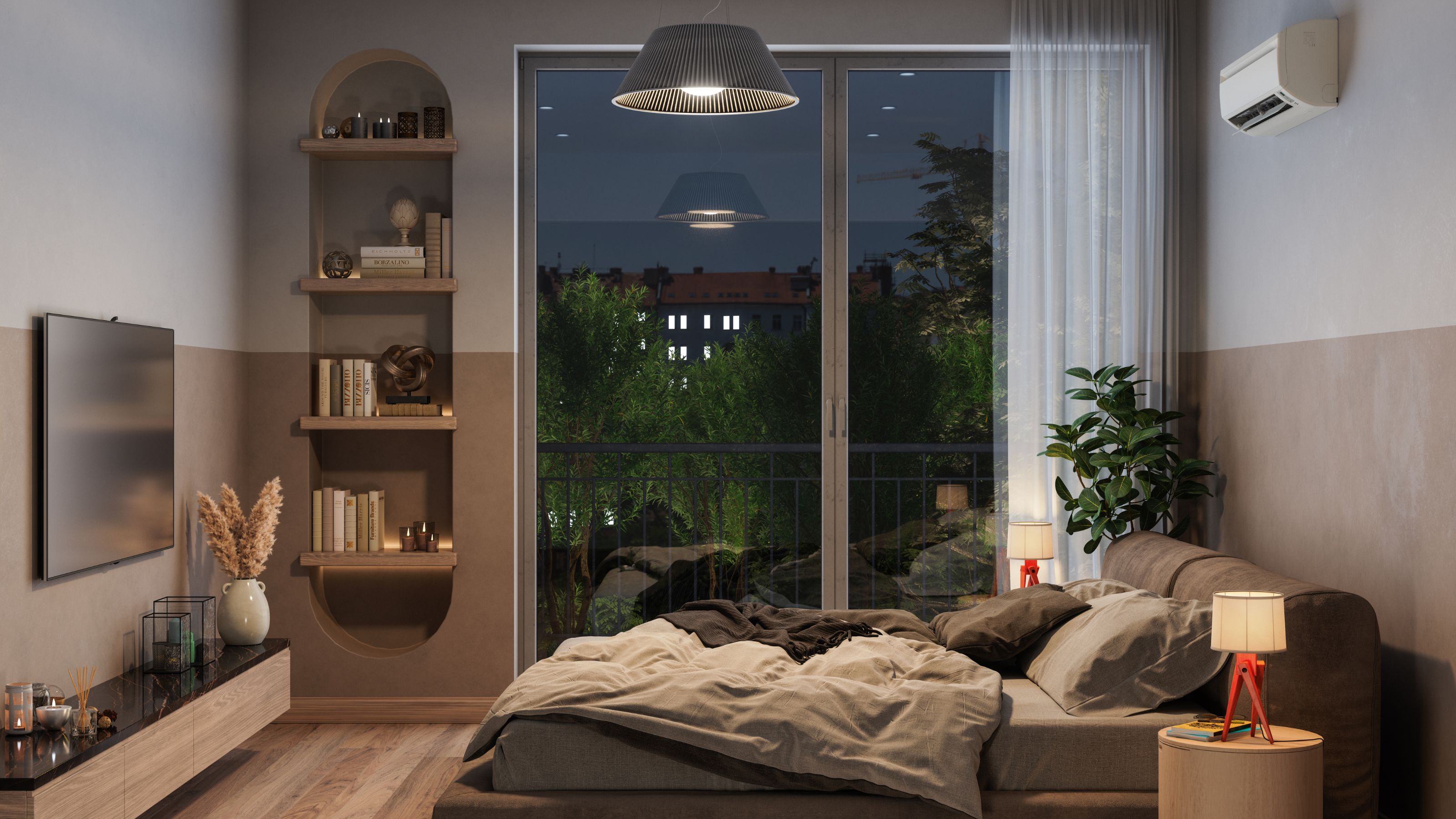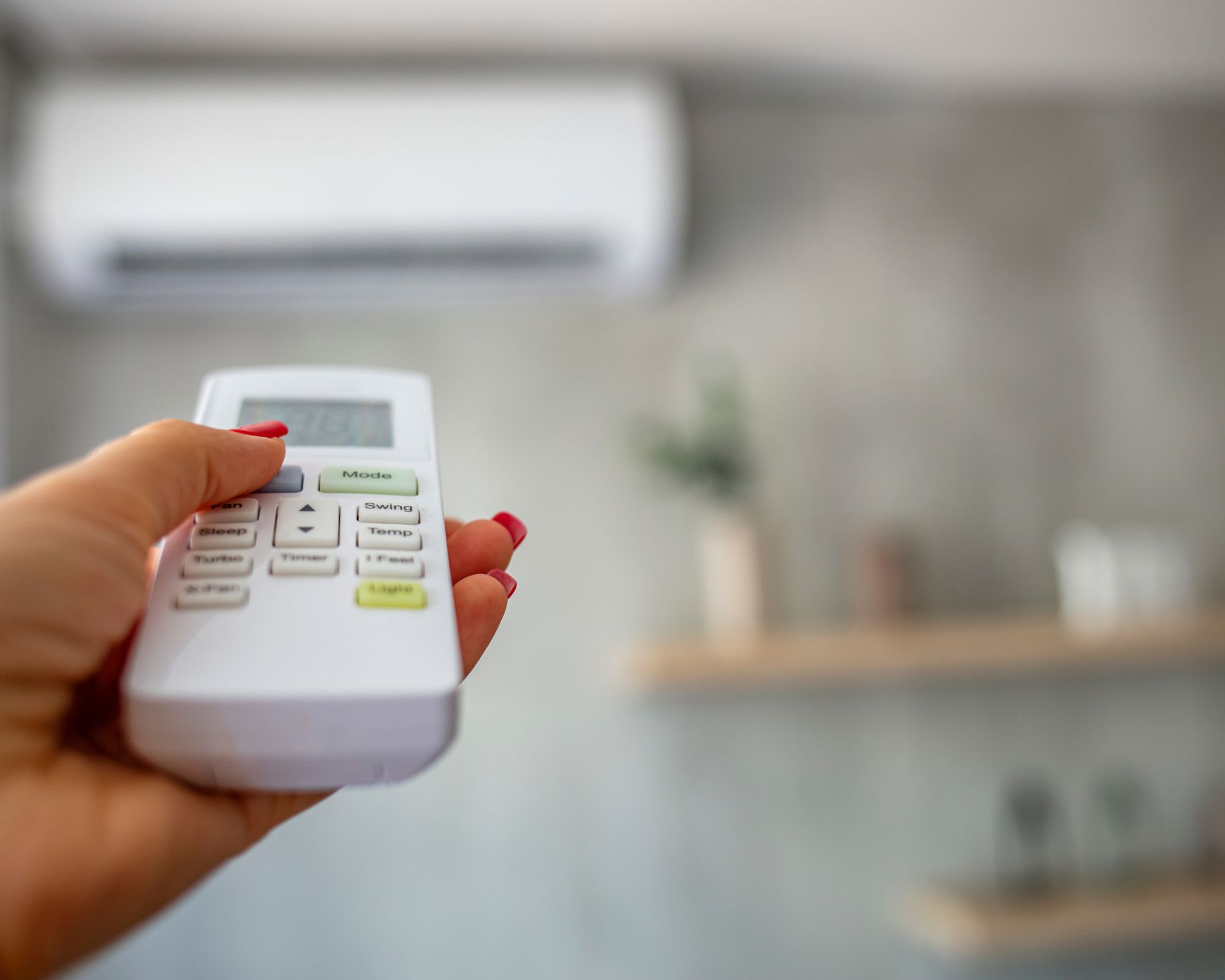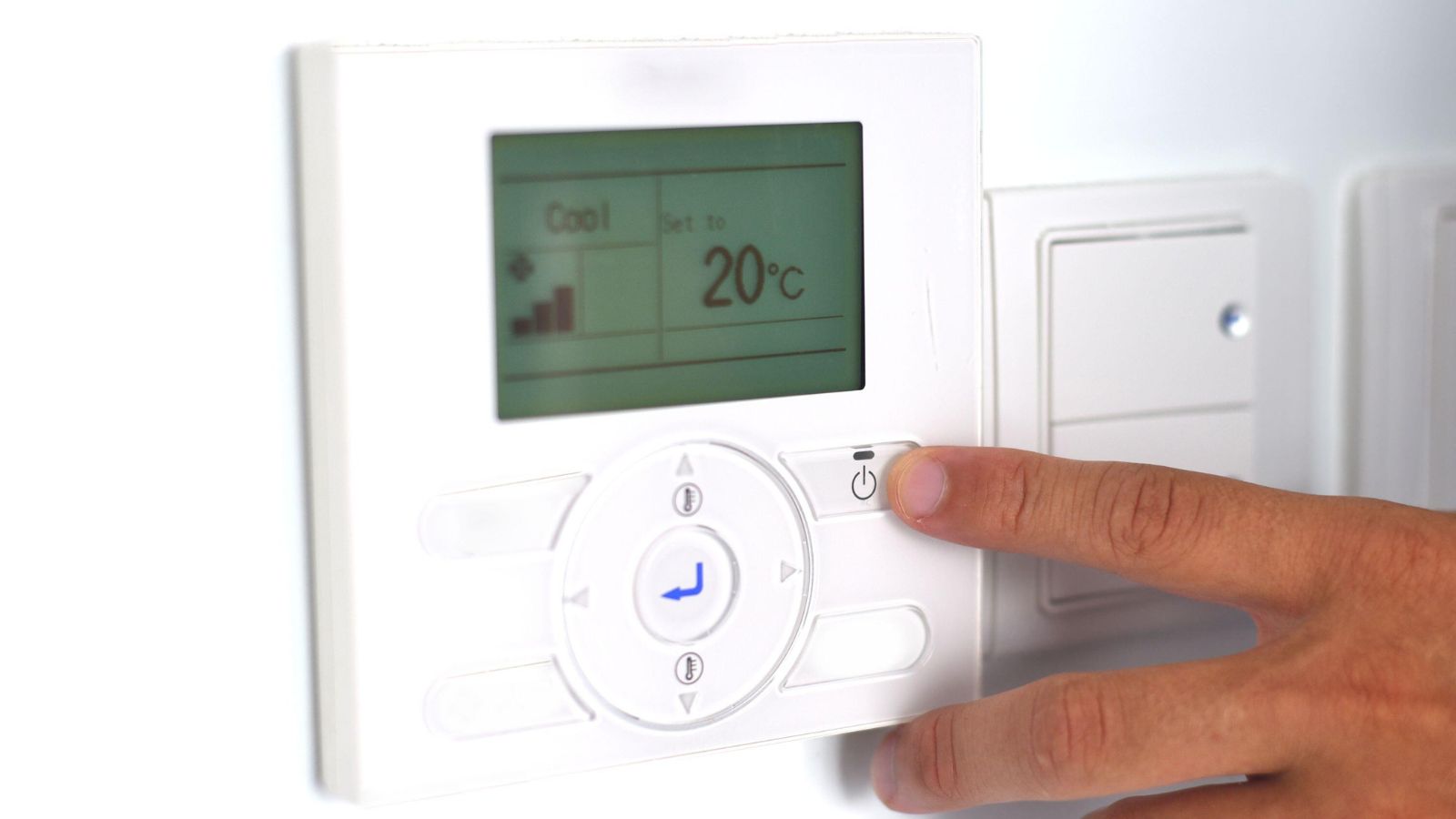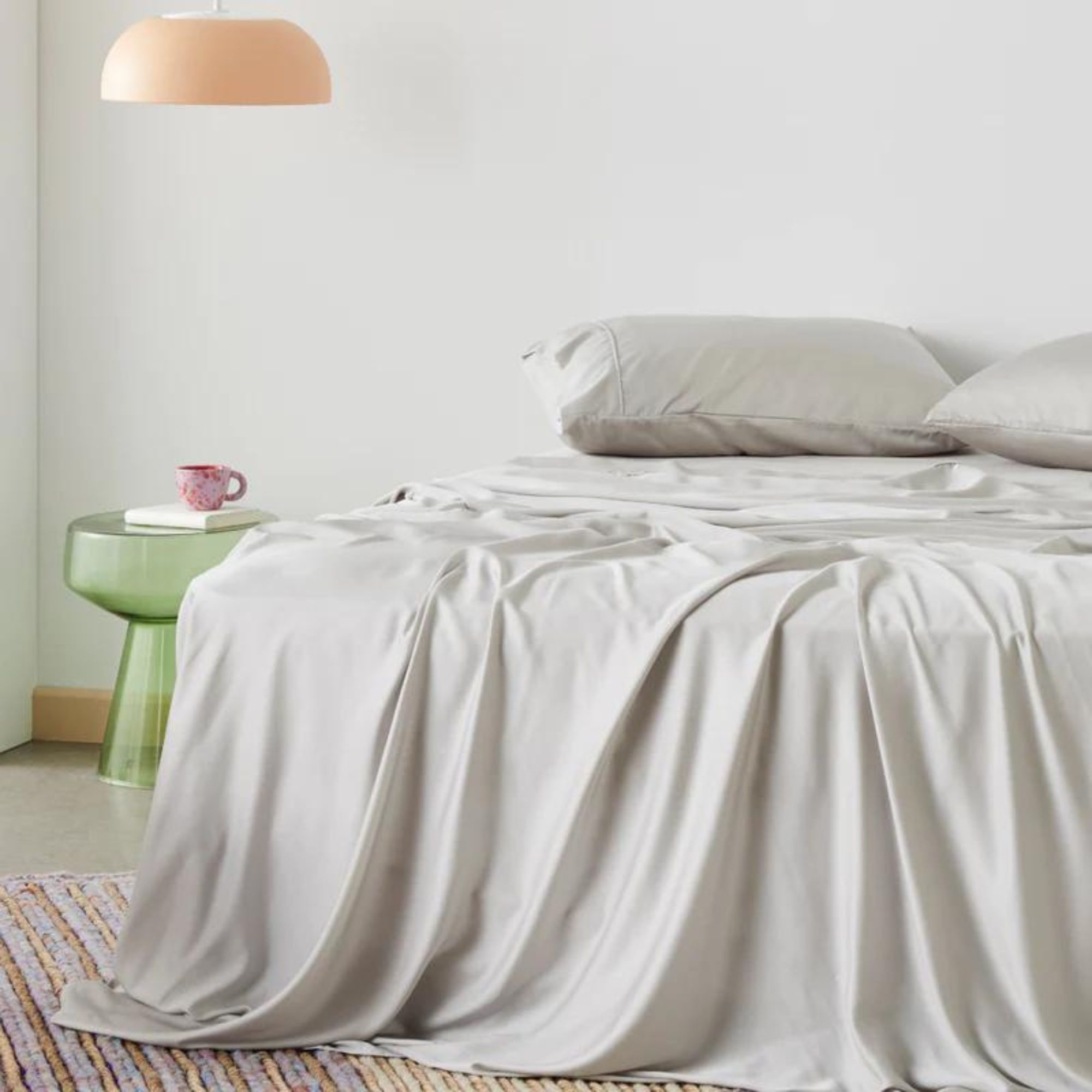Should you turn your AC off at night? Experts warn against running it while you sleep
Keeping your AC on at night might be keeping you cool, but it could be harmful to your health and your energy bills


When it's hot outside, having AC can feel like a luxury. Air conditioning units will absorb the heat in your room and simultaneously blow out cold air. They're the best way to cool a room down quickly. But while higher temperatures can make sleeping a struggle, experts warn against keeping the AC on at night.
From health risks associated with poor sleep to increases in energy costs, both sleep and home energy experts suggest the few adverse effects of running your AC outweigh the benefits of keeping cool.
But that doesn't mean you have to suffer from night sweats either. As H&G's dedicated sleep editor and a self-confessed hot sleeper, I've also listed some of the best cooling bed products to help keep your temperature regulated, so you can follow this advice and keep your air conditioning and best fan off.
You don't have to stick to this advice if you can't sleep without that cool breeze. However, if you want better sleep and lower bills, then it's certainly worth consideration.
Why you should turn you AC off at night

If you live in a very hot area, having the AC on at night seems like a no-brainer – a colder room is said to be the best temperature for sleep, plus it's much cheaper to run air conditioning in the evening. That being said, the experts I spoke to suggest that turning it off has benefits for sleep and as well as your energy bills
1. Turning off your AC promotes better sleep
If you've ever woken up shivering, you know that a room that's too cold will disrupt your sleep. 'Maintaining a cool and comfortable bedroom environment is crucial for a good night's sleep,' says Alvin Pullins, a home improvement and maintenance specialist. 'However, shallow temperatures, especially during sleep, can interfere with sleep quality and overall restfulness.'
Though that is not only the obvious drawback of getting cold at night. 'Having your fan on while you sleep can trigger allergies and make you feel congested, leading to poor sleep,' adds Martin Seeley, founder, and CEO of MattressNextDay. 'Naturally an electric fan will circulate air around the room. But what many people aren’t aware of is that it also circulates dust mites, spores, pollen, and other allergens.' It will also dry out the air and cause you to feel congested. If you're suffering from sneezing, watery eyes, a runny nose, itchy throats and even breathing difficulties, it'd be better to invest in one of the best air purifiers.
By turning the AC off at night 'you can create a more moderate and natural sleeping environment, which is conducive to better sleep. Additionally, the absence of AC noise can contribute to a quieter and more peaceful sleeping environment.' adds Pullins.

Alvin Pullins is a U.S based home improvement and maintenance specialist. He's a qualified expert specializing in home improvement, organization, cleaning, and appliance maintenance. He has been featured on several media platforms and blogs where he has helped, participated, and contributed to numerous professional home-related queries.
His passion for home improvement and maintaining household appliances began with renovating and updating his own homes. He has first-hand experience with the challenges and rewards of maintaining a comfortable and functional home.
2. Turning off your AC can alleviate aches and pains
If you have sore joints or muscles, your AC could be contributing to your aches and pains at night. As Seeley explains, 'if you have pre-existing pains, either from injury, improper posture or sleeping on an uncomfortable mattress, you should refrain from directing a fan' or having strong AC on throughout the night. This is because the concentrated cool air can make your muscles tense and cramp up, causing you even more pain. You may even notice that you have a stiff neck since using an electric fan or having your AC on, so stop using it for a few nights to see if you spot a difference.
You should, of course, consult a doctor first to help with any back pain or sleep issues. Then you should ask whether your bed set-up is to blame. An old sagging mattress lacking in support can cause severe lower back pain and spinal injury, and a pillow of the wrong size can lead to neck aches. One of the best mattresses, designed with your back in mind will make a difference in how well you sleep, and buying the right pillow will positively impact how you feel when you wake up.

The founder and CEO of MattressNextDay, Martin Seeley knows how to overcome any sleep-related problem, offering you the most expert advice and information on a range of health and lifestyle matters.
3. Turning off your AC at night saves money

Most energy providers will put their ratings at their lowest at night. But turning your AC off will help conserve energy and cut down on costs. If you maintain your room at a reasonable temperature all day, you don;t need to run AC at night when you won't even be awake to notice the benefit.
Since 'AC units are among the most energy-consuming appliances in households, sometimes, reducing their usage during times when they are not essential can lead to noticeable savings over time.' says Pullins.
Chris Harvey, a heating specialist at Stelrad,further explains that 'leaving the AC running throughout the night can lead to unnecessary energy consumption and increased utility bills. Turning off your AC at night can prevent unnecessary strain on the system too, and optimize the performance of your heating.
'By implementing this practice, you not only save on utility bills but also promote the longevity and efficiency of your heating and cooling equipment, for when you need it most'.

Chris Harvey works for Stelrad, a manufacturing company creating innovate central heating with an emphasis on not just heating, but also room décor and interior design.
Other ways to keep cool at night
Turning the AC off isn't going to do you any favors if you sleep hot. The good news is there are other ways to keep cool at night that don't rely on your air conditioning or electric fan. As a hot sleeper myself, I've tried and tested some of the best cooling bed products including the best cooling mattress, toppers, and pads that feel cool to the touch and breathable bed sheets perfect for summer months. These are the top products I'd recommend for regulating your temperature at night.

Sizes: Twin, twin XL, full, queen, king
Depth: 6", 8", 10" or 12"
Type: Foam
Comfort: Medium
+ Great for hot sleepers
+ Suits back and side sleepers
- Weak edge support
The Zinus Cooling Gel Memory Foam mattress is one of the best cooling mattresses that also won't break the bank. If you're already in need of a mattress upgrade and also suffer from overheating at night, this is the perfect replacement – especially if you like the sink-in feel of memory foam.
Our Zinus Cooling Gel Memory Foam Mattress review has more details.

Sizes: Twin, twin XL, full, queen, king
Material: TENCEL™ lyocell + Mica nylon blend shell, CLIMA fiber blend fill
Waterproof: No
+ Cool to the touch
+ Sustainable fabrics
- Spot clean only
This hypoallergenic cooling mattress protector is a savior in summer. It is made from Tencel which is naturally cooling and has a CLIMA fill that contributes to it feeling actually cold to the touch. I've been sleeping with this pad on for a few weeks now and I genuinely wake up feeling fresher. It's sustainably made too so I can rest assured I'm making a good investment.

Sizes: Twin, twin XL, full, queen, king, California king
Material: Bamboo lyocell
Colors: 12
+ Naturally cool to the touch
+ Stylish sateen finish
- Silky look isn't for everyone
If you get hot at night but don't want to turn your AC on, a quick fix is simply swapping your sheets. Some bed sheets are prone to trapping heat, but these bamboo covers are naturally temperature-regulating and moisture-wicking or swear-free sleep night after night. They're the set I reach for most, even on cooler days.
FAQs
Is it bad to turn AC on and off frequently?
While turning your AC off will obviously help keep costs down, frequently switching it on and off again can force the unit to run at lower speeds for shorter periods, as there is not enough time for the air conditioning to reach full power. Turning the AC on and off frequently will prevent it from reaching its full cooling potential. This can also strain your unit and contribute to premature wear and tear as it becomes overworked.
What happens if my AC runs all night?
You may appreciate the constant running of your AC in the summer – and especially during a heatwave – but if you continue to run your air conditioning throughout the night and into the morning it could cause damage to not only your health but also the unit itself.
We've discussed the effects keeping your AC has on sleep, but the constant running could also make the unit cold to the point where it breaks. It will reduce the pressure in the evaporator or coiling coil component inside the unit until it freezes over. The freezing could cause the compressor to become damaged and result in your AC no longer working.
What should I set my AC to at night?
If you absolutely must have your AC on at night, there is a recommended temperature. Experts advise the best temperature for sleep is 65°F (18.3°C). Keeping your room on the cooler side will promote better sleep. As Victoria Cedeno, Brand Specialist at Zinus explains, as you prepare for sleep, your metabolism naturally begins to slow down, and in doing so, your core temperature drops.'
Of course, this is a guideline, and how comfortable someone is at night will depend on the individual. Most will find their ideal temperature between 60 and 67°F (15.6 and 19.4°C).
We're not saying to never have your AC on, especially in unbearable heat. But knowing when to turn your AC on, and off, is the trick to better sleep, and energy consumption. Alvin Pullins uses this tip to guide when it's best to use the AC: 'When outdoor temperatures are lower than your desired indoor temperature, it's a good opportunity to rely on natural ventilation'.
Sign up to the Homes & Gardens newsletter
Design expertise in your inbox – from inspiring decorating ideas and beautiful celebrity homes to practical gardening advice and shopping round-ups.

Louise is your eCommerce Editor and sleep specialist to help you wind down well. A connoisseur of the mattress world, Louise previously covered sleep and wellness (as well as the occasional organizational buy) at Real Homes, and has tried, tested, and reviewed some of the buys for your bedroom. With an MA in International Journalism and PR experience, Louise brings bags of bedding expertise and enjoys nothing more than helping readers find solutions and products that best suit their sleep needs.
-
 Orange and green is the bold color pairing quietly transforming homes in 2025 – here's 4 reasons why
Orange and green is the bold color pairing quietly transforming homes in 2025 – here's 4 reasons whyInterior designers are making the orange and green combination work wonders – this is how you can too
By Sophia Pouget de St Victor Published
-
 This Michelle-Pfeiffer-approved chair is made of a forebodingly unusual material, opening the debate: Is it a rustic stunner, or a danger to sitters?
This Michelle-Pfeiffer-approved chair is made of a forebodingly unusual material, opening the debate: Is it a rustic stunner, or a danger to sitters?The actress took to Instagram with a chair made of a controversially sharp material – and fans are unsure of how they feel about it
By Sophie Edwards Published